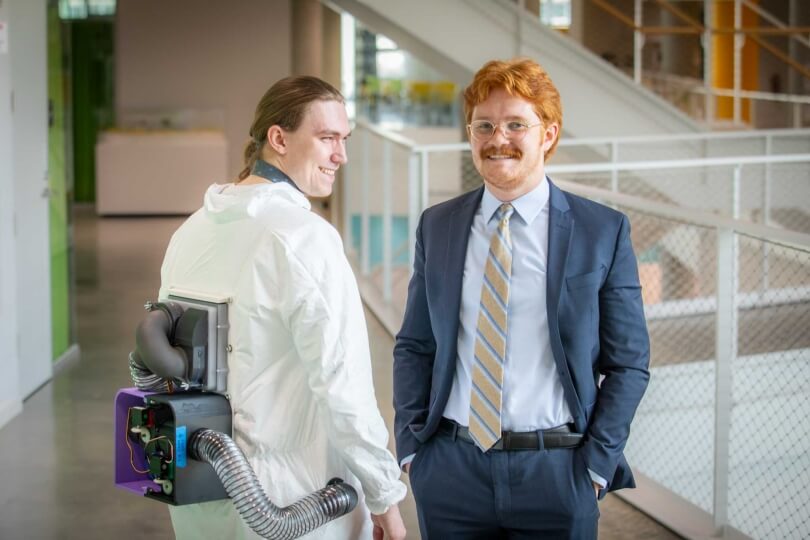News
For their senior capstone project, John Pojman and Jack Shea designed a wearable air conditioner (Eliza Grinnell/SEAS)
Engineering Design Projects (ES 100), the capstone course at the Harvard John A. Paulson School of Engineering and Applied Sciences (SEAS), challenges seniors to engineer a creative solution to a real-world problem.
Desiccant-Based Human Air Conditioner
Jack Shea and John Pojman, S.B. ‘25, Mechanical Engineering
Advisor: Jonathan Grinham
• Please give a brief summary of your project.
We attempt to take moist air, blow it through a moisture-absorbing chemical, then blow that dry air over the human body, which allows you to sweat in humid conditions.
• How did you come up with this idea for your final project?
We were just thinking about rising heating, ventilation and air conditioning (HVAC) costs in buildings, particularly in hot environments. There are some areas of the United States that are implementing these thermal batteries for better HVAC load during heat conditions. We thought that would translate excellently into a wearable device.
• What real-world challenge does this project address?
Temperature models are predicting that in the next 10 years, many parts of the globe are going to experience high temperatures within countries of high humidity that will make them dangerous to be in for extended periods of time.
Cutting-edge science delivered direct to your inbox.
Join the Harvard SEAS mailing list.
Press Contact
Matt Goisman | mgoisman@g.harvard.edu



